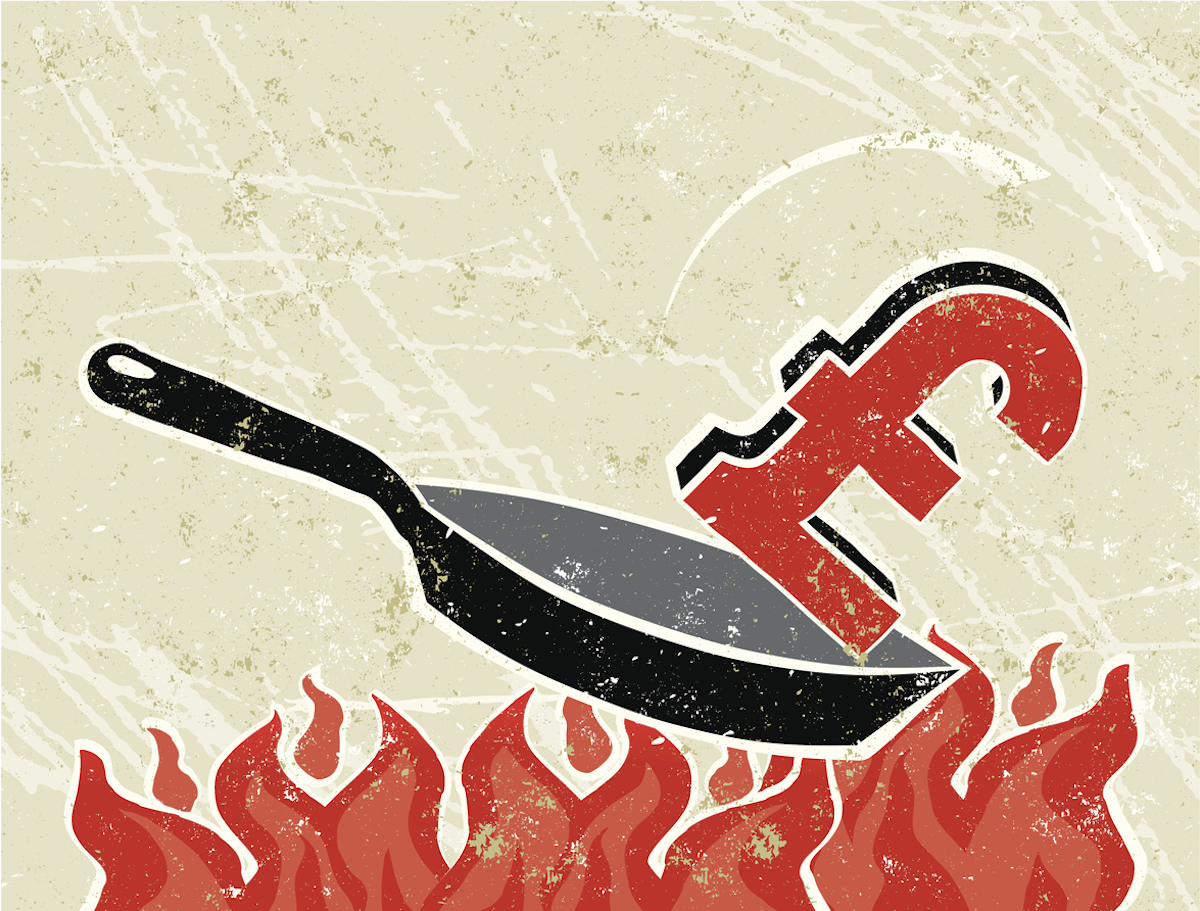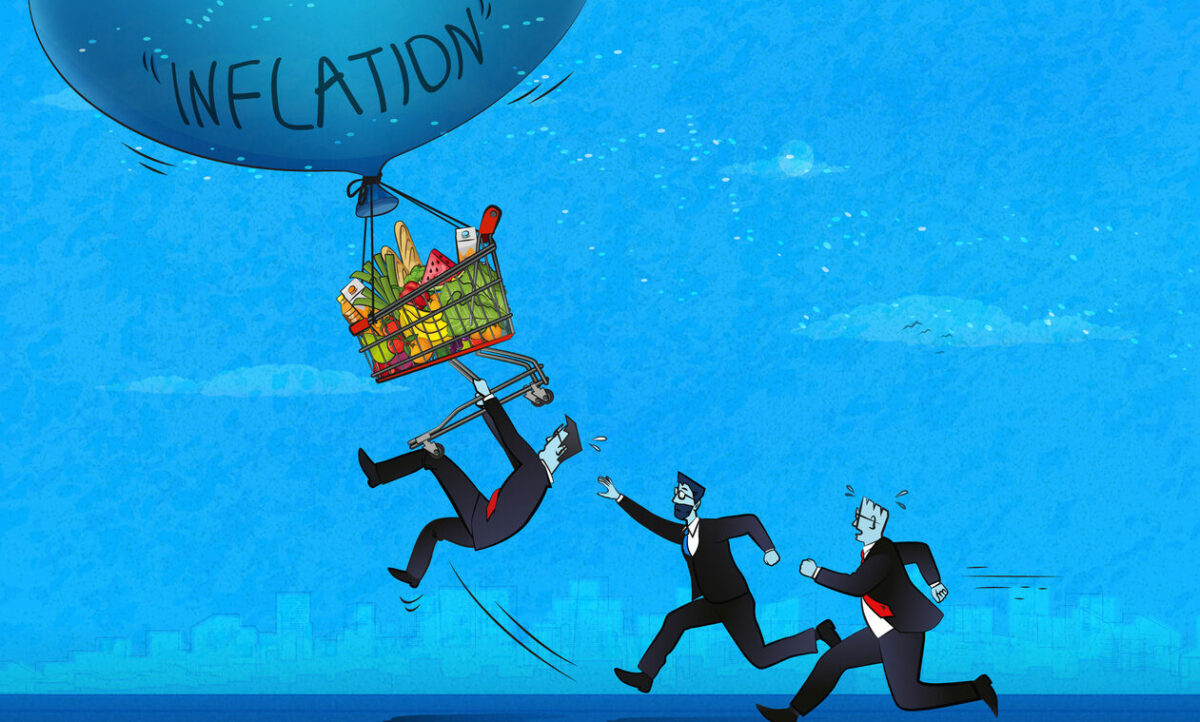How can Prime Minister Liz Truss help the food industry?

Liz Truss once made a speech about food and drink that became famous for all the wrong reasons. Yet despite her awkward delivery, what she was saying in 2014 was promising for the food and drink industry.
Then again, a lot has changed since then, not least the unholy trinity of Brexit, COVID and Putin. And of course, Liz Truss is now the Prime Minister.
What has stayed the same is that food and drink remains in an uncertain place, full of opportunity and obstructions. And Truss knows retailers, wholesalers, farmers, restaurants and artisan traders will be pushing their agendas in her direction now she’s PM. So what will those agendas contain? And what are the chances of them getting it?
One thing that is certainly not specific to the food and drink industry is the spiralling cost of energy. The situation is perilous. Generally the big supermarket bosses prefer to avoid politics, but Iceland MD Richard Walker has been vocal on the issue, saying the increase in energy costs has put a block on his planned store expansion. Pubs and restaurants have also laid bare the blunt reality of the dizzying increases in the cost of electricity – for many they are unsustainable. Tom Kerridge told the BBC his restaurant’s electricity bills will rise from £5,000 a month to £35,000 a month in December, saying the figures involved are “ridiculous and ludicrous.”
Manufacturers also warn Truss needs to do more. In September she announced businesses are to get a six-month support package to reduce their energy bills. On Wednesday 21 September the Department for Business, Energy and Industrial Strategy (BEIS) announced an energy price cap for UK businesses, but Adam Sopher, MD at popcorn specialists Joe & Seph, which exports its product around the world, says: “We urgently need certainty beyond the six months already given to prevent companies stalling investment decisions.” He says he’s “hopeful” she will do it, but for unfortunate reasons. “I don’t think she has a choice, an awful lot of businesses won’t be viable without it.”
Tom Gatz, co-founder of Growth Kitchen, which helps restaurants build delivery networks with the likes of Deliveroo, says he’s excited at the prospect of Liz Truss’ leadership, she has already been vocal about her plans in the energy sector “I’m hoping she continues that for industries that badly need her support. After payroll and rent, utilities are the biggest expense for any restaurant. Margins in the sector are already wafer thin and we cannot afford to see 300% bill increases. Many restaurants will go bankrupt, further worsening prospects of an upcoming economic crisis.”
Small traders also fear that their futures are slipping down the political agenda. Kate Howell, who is in charge of communications at London’s Borough Market, says policies relating to the “quality, environmental impact, equity and security of our nation’s food supply seem to be slipping ever further down the political agenda, and there are very few indications that this will change any time soon. The list of what is needed from the government to make this happen is extremely long.”
She says traders at Borough Market want Truss to recognise the “social, economic and environmental value of small, independent food producers and merchants and give them the support they need in a food system currently heavily weighted in favour of industrial-scale production and retail”
Move further down the supply chain to wholesalers, and once again the priorities are practical measures that are essential to operations. The wholesale industry, which stocks retailers and restaurants, from bijou independents to huge chains, is not asking for frills, but fundamentals, starting with fuel duty, which it wants cut by 15p per litre, to keep the lorries which ferry food and drink around the country from literally grinding to a halt.
FWD chief executive James Bielby says: “The dramatic increase in fuel prices is multiplied and passed on throughout the supply chain and onto consumers, driving up prices and inflationary pressures. A move to cut fuel duty by 15p per litre would bring the UK in line with others across Europe who have responded to spiralling petrol prices. This would result in a concrete, immediate reduction on the cost of living and contribute across the wider economy. Ensuring a competitive food distribution network has to be among the new Prime Minister’s first priorities. Costs are going to continue rising, and be passed on to the public, unless the Government intervenes immediately.”
Of course, the impacts of Brexit are still being felt. Starting with what Adam Sopher politely terms “exporting challenges”. Manufacturers “need support to make exporting to the EU as easy and low cost as it was before Brexit,” he says. And given her infamous speech honed in on the importance of trade deals, he thinks “she’d want to get rid of any barriers to exporting, at least I would hope so. We need additional support for brands to grow exports outside of the UK, particularly into non-EU countries. And I think the Prime Minister really understands this point. She actually came onto our trade show stand in Paris a few years ago, so I’m also hopeful on that one.”
Borough Market’s Howell says Truss needs to “reduce the Brexit paperwork burden on small-scale importers and exporters, which makes low-volume trade in high-quality food so onerous and expensive.”
And as well as the paperwork, Truss has also got to think about post-Brexit labour planning in a “new way,” thinks Bielby. “Skills vital for our economy should be prioritised, and in this instance agri-food workers are essential for keeping shelves stocked, and plates full. The shortages of labour witnessed throughout 2021, most notably resulting in HGV driver shortages, and in 2022 with shortages of pickers and processors, is causing major and unnecessary disruption to the food and drink supply chain.”
Gatz agrees, saying Truss “has to ease immigration rules for EU nationals to support the pressing problem of staff shortages in the industry. There’s been constant pressure since Brexit, which has been further exacerbated by the Covid crisis, pushing workers out of the UK in many cases with no ability to return.
“We’ve seen our customers struggle to hire and retain staff, and with limited quality team members, the problems will only continue. Lifting these restrictions could make a major impact to their chances of thriving in the coming months.”
Vickie Rogerson, MD of North PR, a food and drink PR consultancy, says Truss’s experience at Defra “should be beneficial to the farming industry, especially on increasing access to seasonal workers from abroad which continues to be a real challenge for farmers.”
But when it comes to another set of headline-grabbing restrictions – those around HFSS – she believes Truss needs to get a grip on the situation and introduce a “balanced approach to regulation that takes everyone’s needs into account. The current noise around Truss scraping the anti-obesity strategy and reneging on the HFSS food promotional rules which are due, in part, to come into force in October, are worrying. It may offer some short term relief for some of the UK’s biggest food manufacturers, but the hangover will be long and arduous. It will negatively affect the health of our nation for decades to come and do little to ease the cost of living crisis. Making healthier food more affordable would be a better use of her time.”
Much of her time will be spent planning political strategy that will remain subject to change for reasons outside of her control. But food and drink will hope Truss still remembers what she said when she took the stage in 2014 to make that famous speech. And now that she’s in the top job, that she actually delivers on those ambitions for food and drink.








